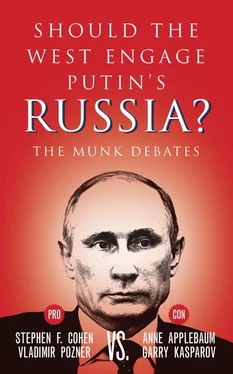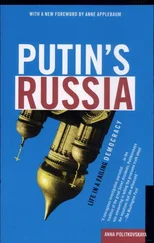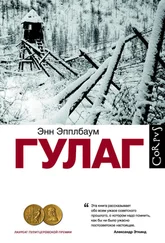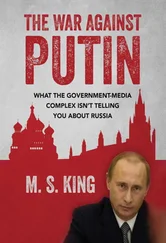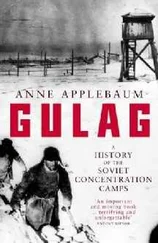STEPHEN F. COHEN: Unlike Ms. Applebaum, I come here, my first trip to Canada, as a patriot of American and Canadian security, on behalf of my family, and yours. I believe that we need a partner in the Kremlin if we are going to have global security — not a friend, but a partner who shares our fundamental security interest. To achieve that, we must not merely engage Russia; we must pursue full co-operation on security and other matters. National security, for both Canada and the U.S., still runs through Moscow. This is an existential truth.
I want you to consider something I’m going to share over the course of this debate. Remember what the former United States senator Daniel Patrick Moynihan once said: “Everyone is entitled to his or her own opinions, but not to his or her own facts.” It’s profound.
Here are the facts: The world today is much more dangerous, far less stable and ordered than it was twenty-five years ago when the Soviet Union existed. There are more nuclear states but less control over the sale of nuclear weapons, over nuclear know-how, and over nuclear material. There are more regional conflicts, more open ethnic and religious hatreds, and there is more political extremism and intolerance. As a result, there is more terrorism in more places.
And to make matters worse, there is more economic and social deprivation and resentment. And as we all know, there are more environmental dangers and foreseeable shortages of the earth’s resources.
Here’s the other fact: not one of these existential dangers can be dealt with effectively without Russia’s co-operation, no matter who sits in the Kremlin. Even after the fall of the Soviet Union, Russia remains the world’s largest territorial country, and one that straddles the fateful frontline between Western and Islamic civilization. Russia still has, proportionately, more of the world’s natural resources, from energy to freshwater, than any other nation.
And, of course, Russia has its arsenals and stockpiles of every conceivable weapon of mass destruction. Whether we like it or not, Russia still has sympathizers, partners, and allies around the world, even in Europe and the Western hemisphere. These are facts. Not opinions.
What is the alternative? Our opponents say it is to isolate Russia. They want to weaken, destabilize, and carry out regime change — as if it were that easy — in Russia. They rely not on facts but on three fundamental fallacies based on their opinions.
Fallacy #1: In this globalized world, it is impossible to isolate Russia. Russia is too big, too rich, too interconnected. Russia has many options, apart from the West. Ever since President Obama said, several months ago, that it was American policy to isolate Russia, the Russian state, under Putin, has signed more financial, political, economic, and military agreements with foreign states than Washington. Russia is connected. Russia has other places to go if we push it out of the West.
Fallacy #2: Isolating Russia from the West will not make Moscow more co-operative or compliant. Instead, we know what Russia will do — it’s already doing it. It will turn elsewhere, above all to China, and to many other regions and regimes around the world that harbour resentments against America, Europe, and Canada. And what will Russia do if we so isolate it? It will sell these countries nuclear reactors — excellent weapons. It will give them credit, and it will protect them politically at the United Nations with its veto.
Fallacy #3: A weakened, destabilized Russia will make every danger I have listed worse and create new ones. Consider, for example, if this policy of isolation, with its sub-policy of weakening Moscow, were to succeed. What would become of Russia’s weapons of mass destruction if Moscow’s control over them diminished? Think about that and yourselves. Think about your children. Think about this kind of madness. Is that what we really want?
Finally, what are the fundamental arguments our opponents make in favour of trying to isolate Russia? They make none that I can see. The towering example, and one which I knew Ms. Applebaum would mention, is Ukraine. What happened in Ukraine is entirely Putin’s fault. The West bears no responsibility: we made no mistakes in our policy whatsoever. This is not factual.
I want to conclude by pointing out what Ukraine has already cost us in terms of our national security. We have lost a security partner in the Kremlin, not just Putin, but perhaps for generations or, at least, years to come. It is splitting Europe against American leadership and possibly undermining the transatlantic alliance and plunging us into a new Cold War. It is bringing us closer to an actual war with nuclear Russia than we have been since the Cuban Missile Crisis. These are the facts.
RUDYARD GRIFFITHS: Thank you, Stephen. Garry Kasparov, you have six minutes.
GARRY KASPAROV: Thank you very much. I’m here not as just a neighbour of Mr. Cohen, because we both live on the Upper West Side of New York, but as a patriot of my country, Russia.
I don’t feel very comfortable arguing against the resolution. My dream when I was a kid, as a chess prodigy travelling abroad, playing under the Soviet and eventually under the Russian flag, was to help make my country a real factor in the progress of humanity. I knew that despite the regime that I hated — the Soviet Union at that time — that Russia had huge intellectual and cultural potential, and that it also had natural resources.
It seemed to me, and to millions of others in my country and in eastern Europe, that our dream had come true in 1991. The regime collapsed, and we all remember the celebrating crowds, pulling down the statue of KGB founder Felix Dzerzhinsky, and the talk of purification and escaping from a cage. It was not an easy time; Yugoslavia had also collapsed and then it fell into a terrible civil war. Russia happily escaped that, thanks to Boris Yeltsin and his wisdom and ability to understand that we needed an agreement with the former Soviet republics.
Russia was engaged from the very beginning. What about all the billions and billions of Western money given as aid to support Russia’s economy? And in 1998, during the financial crisis, it was an International Monetary Fund (IMF) loan that actually helped Russia to escape from the abyss. By the end of Yeltsin’s rule Russia was already on the verge of recovery. Actually, the highest growth of gross domestic product (GDP) in Russia was in the year 2000. And then Putin came to power. The greatest mistake Yeltsin made was to hand over power to a KGB lieutenant colonel nine years after the collapse of the Soviet Union.
And what was the first thing Putin did? He restored the Soviet anthem for those who had ears to hear his long-term agenda. And we began to see the total collapse of the feeble democracy created under Yeltsin. First, the country became a one-party dictatorship, and then it became a one-man dictatorship, the most unstable and dangerous form of government. The whole legacy of the regime is based on his charisma and his ability to excite the audience — the entire propaganda machine works for his greatness. And again, we know from history that after running out of enemies inside a country, these dictators turn elsewhere.
In 2005, I stopped playing chess and I turned toward what some people have mistakenly called Russian politics. I say that because when you traditionally think of politics you think about political parties, debates, fundraising, and elections. Russia has no live television or public debates.
So I knew it would be an uphill battle, one in which my chess experience couldn’t help me at all. In chess we have fixed rules and unpredictable results. Putin’s Russia is the exact the opposite. And all of this has happened during the West’s engagement with the country. I remember watching with horror while Putin hosted the G7 in 2006. I never called it G8, by the way, because for me it was always G7 plus one.
Читать дальше
